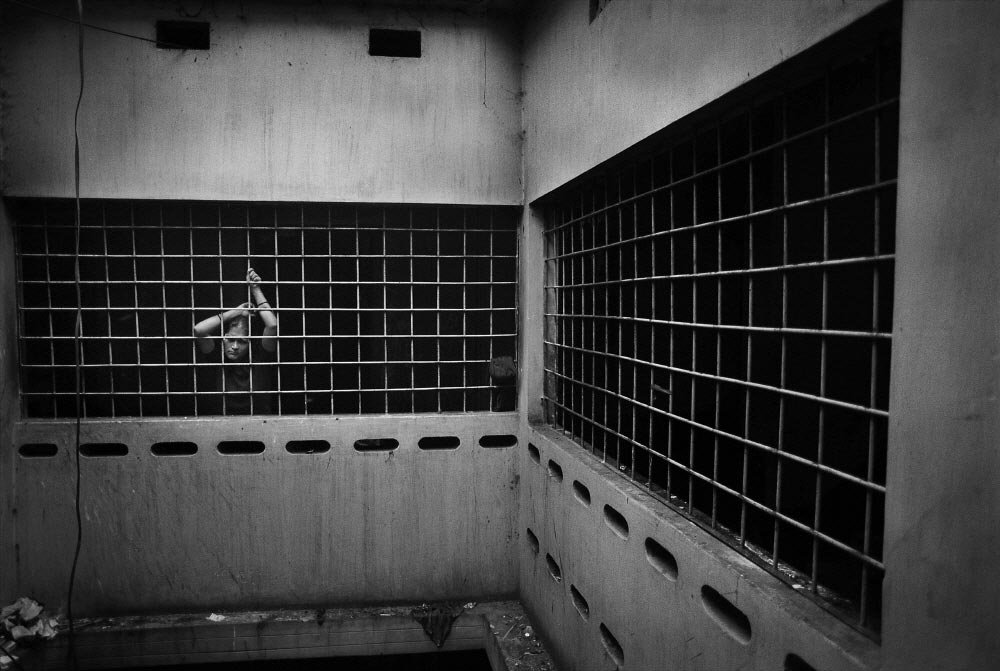Fighting Human Trafficking
Alumnae at the Polaris Project tackle modern slavery

When Andrea Austin (Col ’05) first learned about the prevalence of human trafficking, she refused to believe it. Modern-day slavery? It seemed like something out of a far-fetched movie.
A fourth-year student at the time, Austin had attended a talk by Katherine Chon, co-founder of the Polaris Project, a Washington, D.C.-based organization that fights human trafficking. Austin’s initial disbelief spurred her to take a deeper look at the issue and ultimately join the cause. After earning a master’s degree in international law focusing on human rights, she landed a job with the Polaris Project.
“People think of trafficking happening in places like Thailand, India or Brazil, but no one thinks about it occurring in the U.S.,” she says. “When they do, they think of immigrants who are being exploited. But there are also U.S. citizens who are often trafficked. It’s happening in our own backyard.”
Human trafficking is the second largest—and fastest-growing—criminal industry in the world. Polaris Project officials say more than 12 million people have been entrapped, and an estimated 14,500 to 17,500 foreign nationals are forced or coerced into labor or sexual exploitation annually in the U.S. The number of U.S. citizens being trafficked may be higher.
The anti-trafficking movement, however, is fairly new. Federal legislation protecting victims of trafficking wasn’t passed until 2000. “Now we’re getting states to catch up,” says Austin. Polaris worked with legislators in Virginia for nearly four years to pass a law that established human trafficking as a crime; Gov. Timothy Kaine signed it into law earlier this year.
Part of Austin’s job involves raising public awareness about the issue and mobilizing grassroots efforts, such as letter-writing campaigns pushing for policy change. Mounting pressure led Craigslist to drop its “erotic services” section last month because the ads are often fronts for prostitution. Polaris Project officials want the Washington Post to review its advertising policy concerning spas and massage parlors for the same reason.
Austin isn’t the only UVA alumna committed to the cause.

Sarah Jakiel (Col ’99) also joined the organization after international exposure to the issue and volunteering with human rights groups. After working abroad for five years, she returned to the U.S. to get a master’s degree and now directs the National Human Trafficking Resource Center. Operated by Polaris, the center has a round-the-clock hot line that fields hundreds of calls each month from all over the U.S.
“They’re very diverse calls, from foreign-born nationals to U.S. citizens concerning those forced into labor or the commercial sex industry,” Jakiel says. Sometimes a caller is reporting a suspicious business; sometimes it’s a crisis call from a victim who needs immediate assistance. Calls involving labor trafficking can range from domestic servitude or childcare in the home to larger scale exploitation on fruit farms, factories or food processing plants.
“It’s sad, but I’m constantly surprised by the different means traffickers use to exploit other human beings for profit,” Jakiel says.
When a caller contacts the hot line, sometimes the voice is that of Alden Purdy Pinkham (Col ’06, Grad ’07). Fluent in Spanish, Pinkham joined the Polaris Project after working with migrant farm workers at the Central Virginia Legal Aid Society. Working with diverse service providers and agencies on the ground, the National Human Trafficking Resource Center can refer callers to needed services, shelter and law enforcement.
Pinkham remembers a recent call: A woman who had been a victim of sex trafficking since she was a minor had managed to escape to a shelter, where she was trying to rebuild her life. Her pimp, however, found her and abducted her to another state. When she called the hot line, “she was frightened and didn’t know where to turn,” Pinkham says. Hot line staff quickly contacted the human trafficking task force in the caller’s area and stayed on the line with the woman until help arrived.
“The most satisfying part of my job,” Pinkham says, “is being able to help someone make a connection that they couldn’t make on their own.”